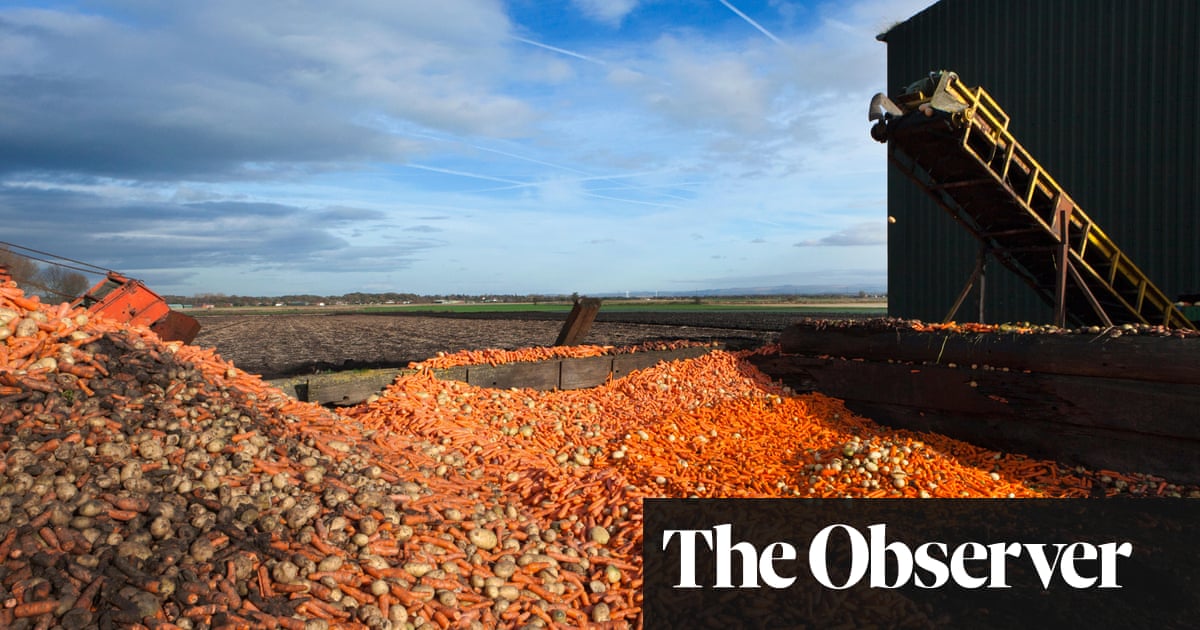Food companies should report how much they throw away as a first step towards reducing the huge amounts of edible food wasted in Britain, a group of leading companies said.
Around a third of the food produced globally each year is thrown away, much of it before it reaches consumers, costing the UK economy almost £22 billion annually.
There is also a heavy toll on the environment: food waste is responsible for a tenth of greenhouse gases worldwide.
More than 30 food companies, including supermarkets and food manufacturers, have written to Environment Secretary Steve Reed calling for mandatory reporting of food waste.
They argue that forcing companies to face the reality of how much they produce and what happens to it will lead to better behavior, including more efficient processes and greater efforts to reuse surpluses.
Reed has repeatedly spoken about his desire for a “circular economy,” with fewer types of waste. The government aims to halve food waste by 2030, but has not yet taken any new measures to achieve this. The Observer understands that ministers are prepared to consider imposing an obligation on companies to report their waste.
Jamie Crummie, co-founder of Too Good to Go, an online service that allows restaurants and food retailers to advertise last-minute surplus food at a discount to consumers, organized the letter to Reed, along with the British Retail Consortium (BRC).
He said mandatory reporting would be a crucial first step and would allow everyone – consumers, government and other businesses alike – to assess how cautious or loose suppliers were compared to their peers.
“Food waste is one of the biggest causes of climate change,” he said. “In the UK alone we throw away 10.7 million tonnes of food every year. We are pleased to see that the Minister for the Environment has identified creating a waste-free economy as a priority. In line with this ambition, and with the support of more than thirty companies from across the food sector, we hope for a rapid implementation of mandatory food waste reporting to ensure transparency and accountability when it comes to our food.”
The letter has been signed by several of Britain’s largest supermarkets, including Tesco, Waitrose, Aldi, Sainsbury’s and Marks & Spencer, as well as the BRC, which represents stores. Food manufacturers including Nestlé, Princes, Innocent Drinks, Yoplait and Yo! Sushi is also on the list.
Mandatory reporting, as envisioned by the signatories, would not be imposed on farmers, but on any company above a certain size in the off-farm food chain.
after newsletter promotion
Some food manufacturers are already using new technologies such as AI to make their supply chains more efficient and reduce waste, as well as more traditional methods such as donating edible surpluses to food banks.
The Department for Environment, Food and Rural Affairs said: “The amount of food we waste is a stain on our country. We work with the business community to reduce food waste and ensure food ends up on the plates of those who need it most. This includes redistributing surplus food to charities and others who can use it, and programs to help citizens reduce their food waste.”
The signatories of the letter are also working with parliamentarians to raise awareness about the problem. Wera Hobhouse, the Liberal Democrat MP for Bath, who is also deputy leader of the all-party parliamentary group for the environment, said: “The number of meals that are simply thrown away each week in Britain is deeply worrying. To reduce food waste across the board, we must first move beyond the throwaway culture we have become far too accustomed to.
“That is why we urge companies to work together to create the right incentives to reduce waste and overconsumption.”



